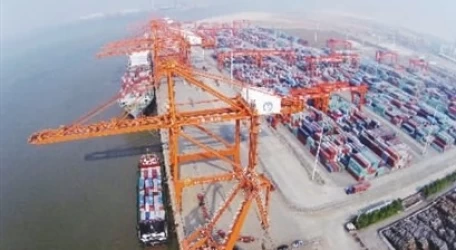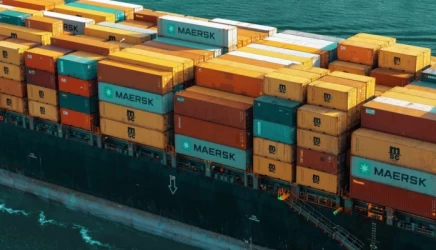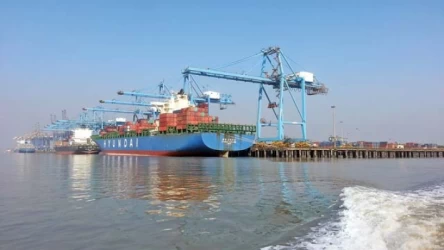A Comprehensive Guide to Trade with Germany and Maritime Transport
Germany is one of the leading global economic powerhouses, known for its high-quality products, advanced technologies, and efficient logistics infrastructure. Whether you are considering importing goods from Germany or exporting to the German market, understanding the intricacies of trade with Germany and its maritime transport options is essential for success.
Germany's Role in Global Trade
Germany has a highly developed and diversified economy, making it the largest economy in Europe and one of the top export nations in the world. The country exports a wide variety of products, including automotive parts, machinery, chemicals, electronics, and pharmaceuticals. This makes Germany a crucial partner in international trade for many countries, especially when considering its strategic location in the heart of Europe.
For those looking to engage in trade with Germany, there are several key considerations to keep in mind:
- Germany’s Trade Regulations: Germany follows the European Union's trade regulations, meaning it is a member of the single market. This gives Germany access to favorable trade agreements with other EU member countries and outside trade partners.
- Import and Export Procedures: When trading with Germany, companies must comply with both German and EU customs regulations, which are designed to ensure safety, quality, and environmental standards.
- Documentation Requirements: Exporters and importers need to provide specific documents, such as commercial invoices, packing lists, certificates of origin, and customs declarations. Understanding these processes will help prevent delays in shipping and avoid unnecessary costs.
Maritime Transport to and from Germany
Germany boasts one of the most advanced maritime transport infrastructures in the world. As a major hub for international shipping, Germany's seaports play a critical role in global trade. The country is home to several large ports that handle both imports and exports efficiently.
- Major Ports in Germany:
- Port of Hamburg: Known as Germany’s "Gateway to the World," the Port of Hamburg is the largest seaport in the country and one of the busiest in Europe. It serves as a major hub for container shipping, bulk goods, and project cargo.
- Port of Bremerhaven: Located in the north, Bremerhaven is one of the world's largest car shipment ports and handles various cargo, including containers and heavy machinery.
- Port of Wilhelmshaven: Germany’s only deep-water port, Wilhelmshaven specializes in the handling of large container ships and is crucial for transporting crude oil and other bulk goods.
- Shipping Costs: The cost of maritime transport from and to Germany can vary based on several factors, such as the size and weight of the shipment, the type of goods, the shipping route, and the time of year. It is essential to work with a reliable shipping partner who can offer competitive rates and secure space for cargo in busy ports.
- Types of Maritime Transport:
- Container Shipping: This is the most common form of maritime transport for goods to and from Germany. Containers come in standard sizes, and this method is cost-effective, especially for non-perishable goods.
- Bulk Shipping: For goods that cannot fit into containers, bulk shipping is a suitable option. Germany's ports are equipped to handle large volumes of bulk goods like coal, grain, and raw materials.
- Roll-on/Roll-off (Ro-Ro) Shipping: For vehicles and heavy machinery, Ro-Ro services are commonly used. Germany's ports are well-suited for this type of transport, especially in Bremerhaven.
- Freight Forwarding and Logistics: When exporting or importing goods to and from Germany, working with an experienced freight forwarder is crucial. These professionals can handle all aspects of logistics, from customs clearance to insurance, ensuring that your cargo arrives on time and in good condition.
Important Considerations for Maritime Trade with Germany
- Customs Regulations: Since Germany is part of the European Union, its customs rules are aligned with EU standards. Importers must understand the various tariffs, duties, and taxes applied to goods entering or leaving the country. Goods may also be subject to Value Added Tax (VAT) and excise duties, depending on the type of product.
- Environmental Standards: Germany has strict environmental regulations, particularly for goods that are transported via sea. Shipping companies and exporters need to ensure that their operations comply with the environmental standards set by both the German government and the European Union.
- Shipping Times: Depending on the origin and destination, maritime transport times to and from Germany can vary significantly. For example, shipments from Asia may take 4 to 6 weeks, while goods transported from the United States may take 2 to 3 weeks. It’s important to plan your logistics to accommodate these timeframes.
- Insurance: Marine insurance is a critical component of maritime trade with Germany. This coverage helps protect against potential losses due to damage, theft, or other risks that could occur during transit.
Conclusion
Germany offers a wealth of opportunities for international trade, supported by its advanced infrastructure, regulatory framework, and strategic location. Maritime transport is a key enabler of this trade, providing an efficient and cost-effective means of shipping goods to and from the country. Whether you are looking to export products to Germany or import German goods into your market, understanding the logistics and regulations will help ensure a smooth and successful trade experience.
By adhering to Germany’s trade regulations, working with reliable freight forwarders, and choosing the right shipping methods, businesses can leverage the vast opportunities in trading with this European powerhouse.
If you have any specific questions or need further assistance, feel free to ask!











